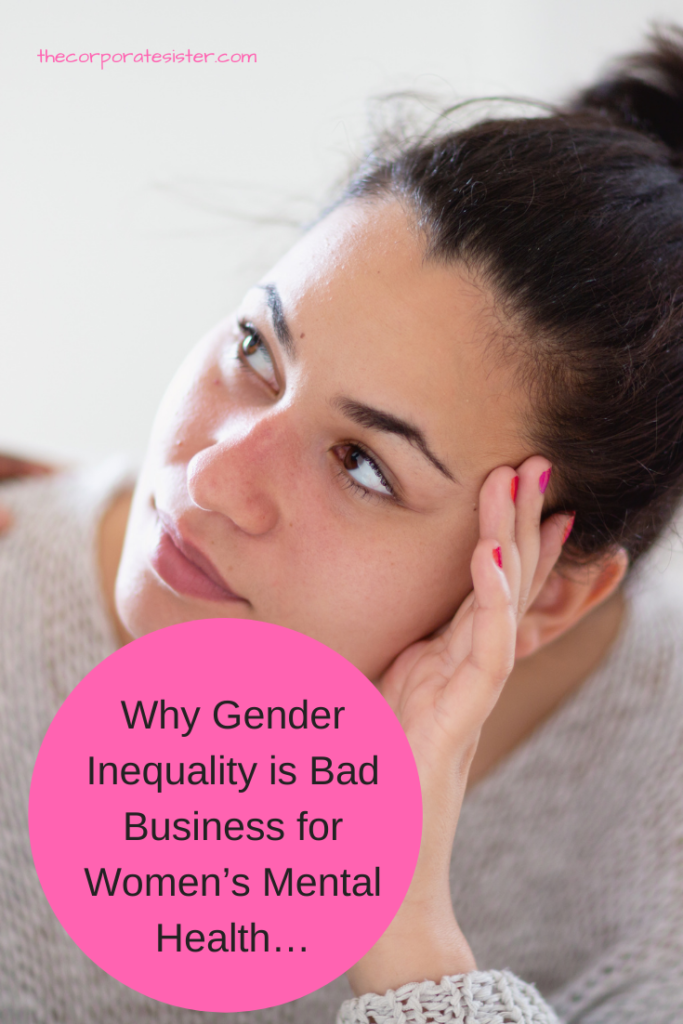If you’ve ever experienced stress, anxiety or even depression from experiencing or being exposed to gender-based violence or discrimination, you’ve experienced some of the psychological effects of gender inequality. Indeed, gender Inequality is not only bad for business and life in general. In addition to creating significant gaps in our economy, well-being and overall stability as a society, gender inequality is bad for our mental health. More specifically for women’s mental health…
From increased levels of depression, stress and anxiety, to acute instances of post-traumatic stress disorder, its psychological effects are profound, and profoundly widespread. This has only been disproportionately inflated by the COVID-19 pandemic, with women more likely to report poor mental health and well-being, along with increased household responsibilities and caregiving loads.
Women and girls are primarily impacted by gender inequality, which centers around genders’ differences related to status, health, power and employment. The unfair and avoidable nature of these differences is referred to as gender equity, which comes from sexism that is anchored in sex or gender-based discrimination. The latter translates into less pay for equal work, more unpaid work, lack of representation, and lower employment and schooling rates. It can also manifest as discrimination in the workplace and sexual harassment as emphasized by the #metoo movement, all of which severely affect women and girls’ mental health. For instance, a 2016 study by Columbia University revealed women earning less than their male counterparts are 2.4 times more likely to be depressed and 4 times more likely to experience anxiety.

As such, research has shown women tend to suffer more from mental health conditions than their male counterparts, including general anxiety, panic attacks, depression, and eating disorders to cite a few. Despite the impact of biological differences on the incidence of mental health conditions, research has further demonstrated a correlation between discrimination and mental health factors. For instance, trauma, which can cause symptoms such as panic, anxiety, or insomnia, is considered a psychological side effect of sexism. In addition, it appears women tend to suffer more from chronic stress than men, caused by stressors such as domestic and caregiving responsibilities. Poor body image and lower self-esteem also contribute to mental health troubles for women.
Overall, gender inequality and the resulting gender inequity are just bad business for women’s mental health. Awareness of this fact can help women, and society at large, prioritize the importance of mental health. In this sense, an increased focus on ( and the removal of the associated stigma) mental health as one of the measures and solutions to gender inequality, along with preventative and healing measures such as therapy and mental treatments for instance, is no longer optional but absolutely crucial. Talking about, and finding ways to relieve the burden of gender inequality on women, can go a long way towards improving their mental health outcomes.
Do you agree that gender inequality is bad for women?
The Corporate Sister.







